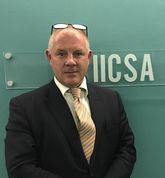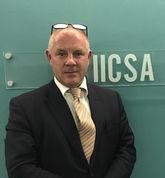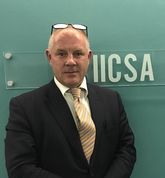 The full report is here: https://www.iicsa.org.uk/keydocuments/4265/view/Child%20Migration%20Programmes%20Investigation%20Report%20March%202018.pdf The IICSA report is quite critical of Her Majesty’s Government (HMG) and focuses on the policy of allowing children to be sent to Australia, New Zeeland and Zimbabwe, where many were subjected to physical and sexual abuse and little if anything done to protect these British children. Very importantly the primary recommendation is that there be a financial redress scheme established and that redress should be paid urgently and within a year, as many survivors are now very elderly. Howe & Co represents a very large proportion of the core participant victims and survivors in the IICSA investigations. We have been pressing the Inquiry since March 2017 to make recommendations on reparations for survivors on an urgent basis, given the age of many victims and survivors. The IICSA Child Migration Investigation Report recommendations are: Recommendation 1: Financial redress 1. HMG was, over many years, the institution primarily responsible for the post-War child migration programmes: it established the legal framework within which the sending institutions operated, it provided essential funding, it facilitated relations with overseas Governments and it operated, to a very limited degree, a system of regulation and oversight. 2. However we have found that post-War child migration was a fundamentally flawed policy, and that HMG failed to ensure that there were in place sufficient measures to protect children from sexual abuse (as well as other forms of abuse and neglect). Thus the children were placed in environments where they were exposed to a range of risks, including the risk of sexual abuse, and where sexual abuse was less likely to be prevented, identified, reported or stopped. We have also found that HMG failed to respond appropriately to the reports it received about the welfare of the children, by either stopping migration and returning the children, or putting in place other measures to reduce the risks to the children. 3. HMG has not yet made any financial redress directly to individual former child migrants. Most former child migrants have died. This means that in many cases HMG has missed its opportunity to offer redress to those who were affected by its failure. However, around 2,000 child migrants are alive today, and the Panel considers it essential that all surviving former child migrants are offered such redress. 4. As a result, the Panel recommends that HMG establishes a Redress Scheme for surviving former child migrants, providing for an equal award to every applicant. This is on the basis that they were all were exposed to the risk of sexual abuse. Given the age of the surviving former child migrants, the Panel urges HMG to establish the Scheme without delay and expects that payments should start being made within 12 months. 5. We also propose that no regard be had to any other payments of compensation that have been made in particular cases. This is because we consider that this scheme is driven by the need for the HMG to make redress for its policy failings in this context, and it has not done so to date. Given that this is the rationale for the scheme, the establishment of the Redress Scheme should not be used as a reason for reducing funding for the Child Migrants Trust or the Family Restoration Fund, which funding serves different purposes. 6. The Panel has not specifically recommended that other institutions involved in the child migration programmes participate in the Redress Scheme. This is not because we do not consider that these institutions failed the child migrants: our report makes clear that we think they did. Rather, it is because we consider that HMG was primarily responsible and because we are keen to ensure that the Scheme is a simple one, in the hope that it can be effective soon, and make a real, immediate and lasting difference to the lives of the former child migrants. If HMG wishes to look to those other institutions for a contribution to the Redress Scheme, it will no doubt do so. 7. We make it clear that we are recommending the setting up of a Redress Scheme because of the particular context of the child migration programmes. One aspect of these programmes which makes them unique was that HMG failed to take steps to respond to the fact that the children were sent abroad, to countries where they would not have the protection of UK law. Different considerations may apply to contexts where the protection of UK law continues to apply to children. Recommendation 2: Further institutional apologies 8. We are troubled by the amount of time it took successive British Governments to acknowledge the full responsibility of HMG for the fate of the child migrants. It has taken years for the former child migrants to have the truth of their experience recognised. This truth was clear from the Government’s own documents, kept in the National Archives. 9. Through the national apology given in 2010, the evidence provided to the Inquiry and the apologies repeated before us, the British Government has now accepted the failings of the child migration programmes including in part with respect to the risk of sexual abuse. We do not consider it appropriate to recommend that they make any further acknowledgement of or apology for the failings that took place. 10. However we do consider that implementing the Redress Scheme is an essential component of the British Government continuing to accept responsibility for the abuses suffered by child migrants, including sexual abuse. 11. As we have set out in the institution-specific sections of the report, some institutions have still not apologised for their role in the child migration programmes. We recommend that they do so, as soon as possible. We recommend that they make such apologies not only through public statements but specifically to those child migrants for whose migration they were responsible. Recommendation 3: The preservation of child migrants’ records 12. As we have set out earlier in the report the Inquiry’s ability to investigate allegations or evidence of sexual abuse within child migration programmes was hampered at times by the failure of some institutions, notably the Royal Overseas League and the Sisters of Nazareth, to have preserved the contemporaneous documentation. 13. The inability to access their records in a straightforward manner, or at all, has caused some child migrants yet further distress and an ongoing lack of clarity over their identity. 14. We therefore recommend that that all institutions which sent children abroad as part of the child migration programmes should ensure that they have robust systems in place for retaining and preserving any remaining records that may contain information about individual child migrants, and should provide easy access to them. Conclusion Howe & Co welcomes this first IICSA report and its recommendations. We urge the Inquiry to move quickly to issue further reports and recommendations in the interests of children currently in care and in the interests of victims and survivors who were previously abused in care.
0 Comments
 Howe+Co welcomes this news this morning that the Criminal Injuries and Compensation Authority (CICA) is to act on the representations made by Howe+Co and other organisations, and amend its policy in relation to the age of consent with children. Previously the CICA had refused claims for compensation from some children who had been victims of sexual abuse. The CICA had asserted that the children consented to sexual assault and rape as defined by law, including where children had been abused by groups of men. This resulted in victims being denied compensation even after their abusers had been jailed. David Enright, partner at Howe+Co, said: “This change marks a major step forward for victims of child sexual abuse. We have been making submissions to theInquiry and to the CICA on this matter for a number of months, and the change has come about through the dedication and determination of Howe+Co’s Core Participants, who have fought for this injustice to be corrected.” Howe+Co has made oral and written submissions on this matter to the Independent Inquiry into Child Sexual Abuse on numerous occasions since February, and to the CICA directly. David Enright wrote to the Chair of the Inquiry in February,asking her to make an urgent recommendation that the CICA approach to consent be moved into line with the legal definition that everyone else understands, and raised this a number of times in person and in writing since. Other organisations including Liberty also made submissions to the Ministry of Justice, after Howe+Co briefed Liberty in relation to the issue. Going forward, this change in policy will affect hundreds if not thousands of survivors of child sexual abuse. Howe+Co will continue to campaign for truth, justice and accountability for all victims of sexual abuse through its representation of a significant portion of the survivor Core Participants in the Independent Inquiry into Child Sexual Abuse. If you have been a victim of child abuse, you can contact our specialist team on 020 8840 4688. Howe & Co, are very pleased to announce that Professor Alexis Jay, Chair of the Independent Inquiry into Child Sexual Abuse, today granted three further applications for Core Participant status for clients of Howe & Co. David Enright (Partner and head of Howe & Co’s Inquiry team) said:
“Our team puts a great deal of work into assisting vulnerable victims and survivors to have a meaningful role in this important public Inquiry. I am very pleased that we continue to win recognition for our clients in the IICSA” Howe & Co are currently encouraging persons who were or who are affected by issues of on line grooming to come forward so that we can assist them in relation to the IICSA’s newly announced Internet Investigation. The dead line for core participant applications for this vitally important investigation is the 28 July. As such we would encourage any persons affected (directly or indirectly) by child abuse which was facilitated through the internet or otherwise to contact us as soon as possible.  David Enright, Head of Howe+Co IICSA team, lead a large delegation of core participant victims and survivors to the public inquiry's seminar on the fourth and fifth of July this week. David Enright said "effective and meaningful participation of victims of survivors is vital for public confidence in this important public enquiry. That has been and will remain our central focus in our work in this child sexual abuse.” Hard copies of the research papers were available at the seminar, and the research papers are very interesting, dealing as they do with the wide range of impacts that child sexual abuse has on victims and survivors across so many areas of their lives. Inquiry Seminar Agenda 4th July 2017 Transcript Of Inquiry Seminar Tuesday 4th July 2017 Inquiry Seminar Agenda 5th July 2017 Transcript Of Inquiry Seminar Wednesday 5th July 2017 Links to research papers Click here to The Times today published an article by its chief reporter Sean O’Neill regarding the Independent Inquiry into Child Sexual Abuse, in which Howe & Co represent 25 % of the victim and survivor core participants.
The Times report states that the Inquiry has not published a single report since its inception 2 years ago and despite the cost of the Inquiry to date. In fact, Howe & Co have been pressing the IICSA for many months to make interim recommendations for changes and improvements to the Civil Justice System, The Criminal injuries Compensation Scheme and in regard of reparations for survivors. As recently as the 8 June, when Howe & co met with the Inquiry’s legal team, Howe & Co raised the need for early recommendations again. We were advised that the solicitor to the Inquiry would be engaged in meetings in the current weeks in regard of making early recommendations and the Inquiry would be publishing an interim report in early 2018. On the 4 and 5 July Howe & Co will be attending a victim and survivor seminar being held by the Inquiry along with a large group of Howe & Co’s core participant clients. Howe & Co’s clients continue to demand that there is open, transparent and a clear process from the Inquiry and that information is provided at the earliest opportunity to allow our clients some of which are illiterate, to properly interact with the process and feel that they are part of the process. We again urge the Inquiry to ensure that the victims and survivors of child sexual abuse are front and centre of the Inquiry. edit. On Tuesday 4th and Wednesday 5 July an Inquiry Seminar will be held on Victims and survivors’ experiences: impacts of Child Sexual Abuse (CSA), support needs and support services.
The Seminar will hear from a number of individuals, to gather information and views for consideration by the Inquiry on the impact of CSA on victims, survivors and their families; their support needs; and current support provision. The Seminar will be held in the International Dispute Resolution Centre (IDRC), London and will be live streamed, subject to a five minute delay, on the Inquiry Website. The location will normally be here but this may change on the day. The full agenda is attached and a participant list will be published once confirmed nearer the seminar.  Howe + Co attend the hearing before the IICSA on the 6 June 2017. The Guardian Report of the Catholic Church Investigation of the IICSA on which Graham, Adam, Martin, Jack and I have been working. The second link is to the transcript of the hearing, our first set of submissions begin at page 19. It is a very important investigation as the Catholic Church is responsible for he education fo over 900,000 children in England and Wales; and there are serious concerns regarding child protection in Catholic institutions, not least locally in Ealing Abbey and School (whose former Abbot goes on trial for child sexual abuse in October) https://www.theguardian.com/uk-news/2017/jun/06/uk-child-abuse-inquiry-three-catholic-schools-should-form-case-study www.iicsa.org.uk/key-documents/1494/view/6 June 2016 Roman Catholic Church Preliminary Hearing Transcript.pdf?platform=hootsuite  David Enright Partner at How + Co. A full transcript of the seminar can be found here The Criminal Injuries Compensation Scheme (CICS) is a national scheme that provides compensation to victims of crime from the public fund, particularly in circumstances where a victim is unable to seek damages from the perpetrator if, for example, the perpetrator is not known, is dead or in some other way unable to be pursued for compensatory damages. The purpose of the Seminar was to consider the CICS Scheme and in particular obstacles in the scheme that might hinder Survivors in gaining access to the scheme and achieving appropriate levels of compensation, along with identifying improvements that could be made to the scheme. There were a number of significant contributors to the seminar including: Myself and Adam Tear of Howe & Co Solicitors Baroness Newlove, the Victims Commissioner for England and Wales and Michelle Brown, an adviser to Baroness Newlove, The former chairman of the Criminal Injuries Compensation Appeals Panel Mark Castle, chief executive of victim support The coordinator of the Association of Personal Injury Lawyers special interest group on child abuse And a number of specialist solicitors who specialise in assisting Survivors in seeking compensation through the CICA scheme. Survivor participation In the run up to the seminar I made repeated representation to the Inquiry requesting that core participants (who had weaved anonymity) would be permitted to make contributions directly to the Inquiry’s Panel. The Inquiry maintained a firm line that this would not be permitted and that all comments would have to go through the core participant’s legal representative (i.e. myself). I continued to press on this issue. I asked Sam Stein QC to contact and speak with Peter Skelton QC, who was to facilitate this Seminar. Sam spoke with Mr. Skelton on the evening of 20 February at some length, and impressed upon him the importance of allowing Survivors to contribute directly to the Panel. Mr Skelton maintained that this could not be permitted and that contributions would have to go through legal representatives. I fully understood Liz and Brian’s decision not to attend in circumstances where it appeared that direct contributions would not be facilitated. I made it clear to Mr. Skelton that you had not attended for this very reason. I met Mr Skelton and his junior before the Seminar and impressed upon him again the importance (both to Survivors and to the inquiry) that core participants be allowed to contribute directly to the Panel. I did so in no uncertain terms. I then introduced him to our clients who were in attendance, who also impressed upon him, in the clearest terms, of their requirement that they be able to contribute directly to the Panel. Mr Skelton agreed to raise the matter again with the Panel and it was agreed that core participants would be able to make direct contributions at the end of each session. As you will see from the Transcript Nigel O’Mara, Peter Robson, Karen Gray and Tom Harding all made excellent and well received contributions. The four sessions focused on different aspects of the CICS scheme and access to it. It concluded with a session on proposals for improvement. As you will see from the transcript I proposed that the Inquiry make seven preliminary recommendations for change now, and not at some later stage. We were pleased that the Chair, in her closing remarks, “ We will certainly be making reference to our thinking on this when we publish the report next year. But as I said earlier, we will take into account Mr Enright's comments about timing.” That is to say my submission that the Inquiry could take action on a number of issued very quickly and not wait for the publication of its full report next year. This is a matter I will be pressing the Inquiry on today when I write to the Inquiry re emphasising the need to take prompt action by making at least some recommendations for improvements to the scheme now. Conclusion Once again, we were the only firm of solicitors who arranged for our clients to attend this seminar. Without our work and the efforts of the core participants who attended, there would have been no Survivors in attendance, which would have greatly lessened this seminar.  As the solicitor and Queens Counsel representing almost 20 % of core participants in the Independent Inquiry into Child Sexual Abuse Public Inquiry, we wish to express our grave concern regarding he reports that Counsel to the Inquiry, Mr Ben Emerson QC, is considering his position. Our many Survivor clients do not, without full and proper consultation, agree with any modification or reduction in Scope of the Inquiry’s Terms of Reference or Scope. Our clients have been, and remain, deeply concerned that the Inquiry continues to make important decisions behind closed doors and without consultation with Survivors. However, we wish to state publicly that Mr Emerson QC is a distinguished and respected counsel with an excellent track record in large, complex and difficult public Inquiries, such as the highly charged Leveson Inquiry. We urge the Home Secretary and the Chair of the IICSA, Professor Alexis Jay to listen carefully to the concerns of Mr Emerson, and to provide whatever additional support is needed to allow him and his team to successfully drive forward this vitally important Public Inquiry. David Enright JP, solicitor representing core participant, said: “Tens of thousands of Survivors of child sexual across the UK have waited their whole lives for an Inquiry that will provide them with truth, Justice and hold those who blighted their lives to account. We call on the Home Secretary and Chair of the IICSA to engage actively and urgently to find a way forward that secures the confidence of Survivors and provides the Inquiry’s legal team with the resources and support they need to deliver the justice and truth that Survivors deserve.” Sam Stein QC, of Mansfield Chambers, said: “Ben Emerson QC is a distinguished legal counsel who has demonstrated determination, skill and fearlessness in, for example, his examination of powerful witnesses in the Leveson Inquiry. Whereas, those I represent are deeply dissatisfied with aspects of how the IICSA has been conducted thus far, I am certain that Ben Emerson would be an asset to this vital public Inquiry going forward. Mr Emerson brings intellectual weight, honesty and integrity to the IICSA. I urge the Home Secretary to seek to find a way in which his valuable contribution can be maintained.” Notes to Editors David Enright is a partner with Howe & co Solicitors and represents almost 20% of all core participants in the Inquiry. He is a former solicitor of the year, winner of the Liberty and Justice Human Rights award, and a member of the Council of Liberty. Sam Stein QC, is a part of Mansfield Chambers, and a distinguished Queens Council he is instructed to act on behalf of core participants in this IICSA. Contacts: David Enright (Howe & Co Solicitors) 0208 840 4688 |
IICSAIndependant Inquiry into Child Sexual Abuse Archives
March 2018
Categories |
